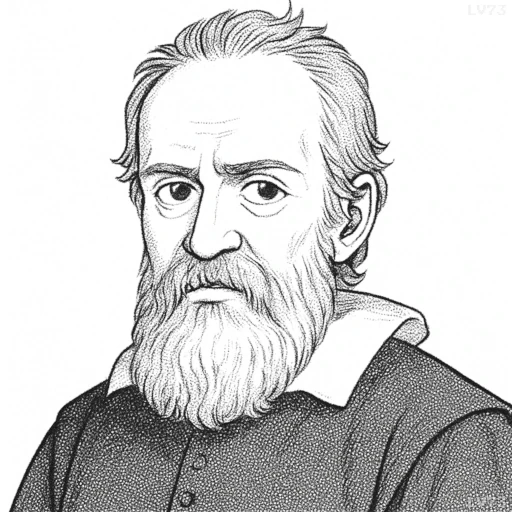“The nature of the human mind is such that unless it is stimulated by images of things acting upon it from without, all remembrance of them passes easily away.”

- February 1564 – January 8, 1642
- From the Duchy of Florence (Italy)
- Physicist, astronomer, mathematician
table of contents
Quote
“The nature of the human mind is such that unless it is stimulated by images of things acting upon it from without, all remembrance of them passes easily away.”
Explanation
Galileo’s quote reflects his understanding of how human memory and attention work. He observes that the mind requires external stimulation—such as images, sounds, or other sensory experiences—to retain information. Without these sensory triggers, the mind tends to forget or lose track of things over time. This aligns with his broader understanding of empirical observation and how sensory experience is essential to acquiring knowledge. Galileo’s insight into the mind’s dependence on external inputs for memory preservation highlights his awareness of human cognition and how closely linked perception is to remembrance.
In modern psychology, this quote resonates with our current understanding of how visual memory and sensory input play significant roles in cognitive processes. The theory of sensory memory suggests that people remember things more easily when they are presented in a memorable, engaging manner, such as through images, visual aids, or repeated exposure. This is why educational strategies often employ visual learning tools or multimedia resources to improve retention. For example, students are more likely to remember information presented through infographics or videos than through text alone. Galileo’s observation can be seen as an early recognition of the importance of engaging the mind’s sensory faculties to enhance learning and memory.
The quote also points to the value of experience in shaping human understanding. Galileo himself relied on direct observation of the natural world, believing that sensory engagement with phenomena was key to unlocking deeper truths. In contemporary society, we continue to recognize the power of firsthand experience—whether through hands-on learning, interactions with the environment, or immersive technologies—to reinforce concepts and ensure that knowledge is retained. Galileo’s words remind us that the process of remembrance and understanding is not passive; it requires active engagement and external stimuli to solidify what we learn.
Would you like to share your impressions or related stories about this quote in the comments section?

